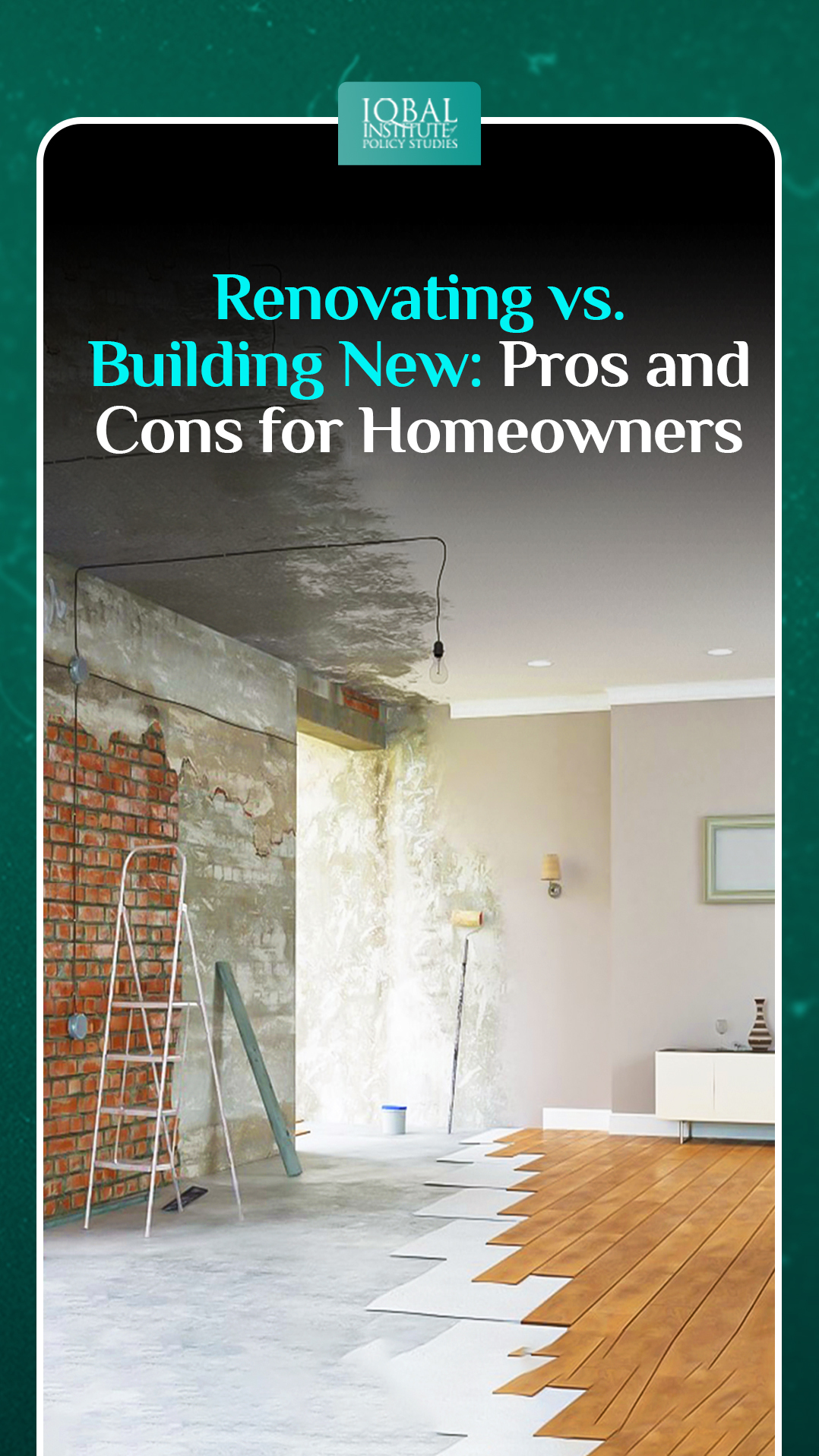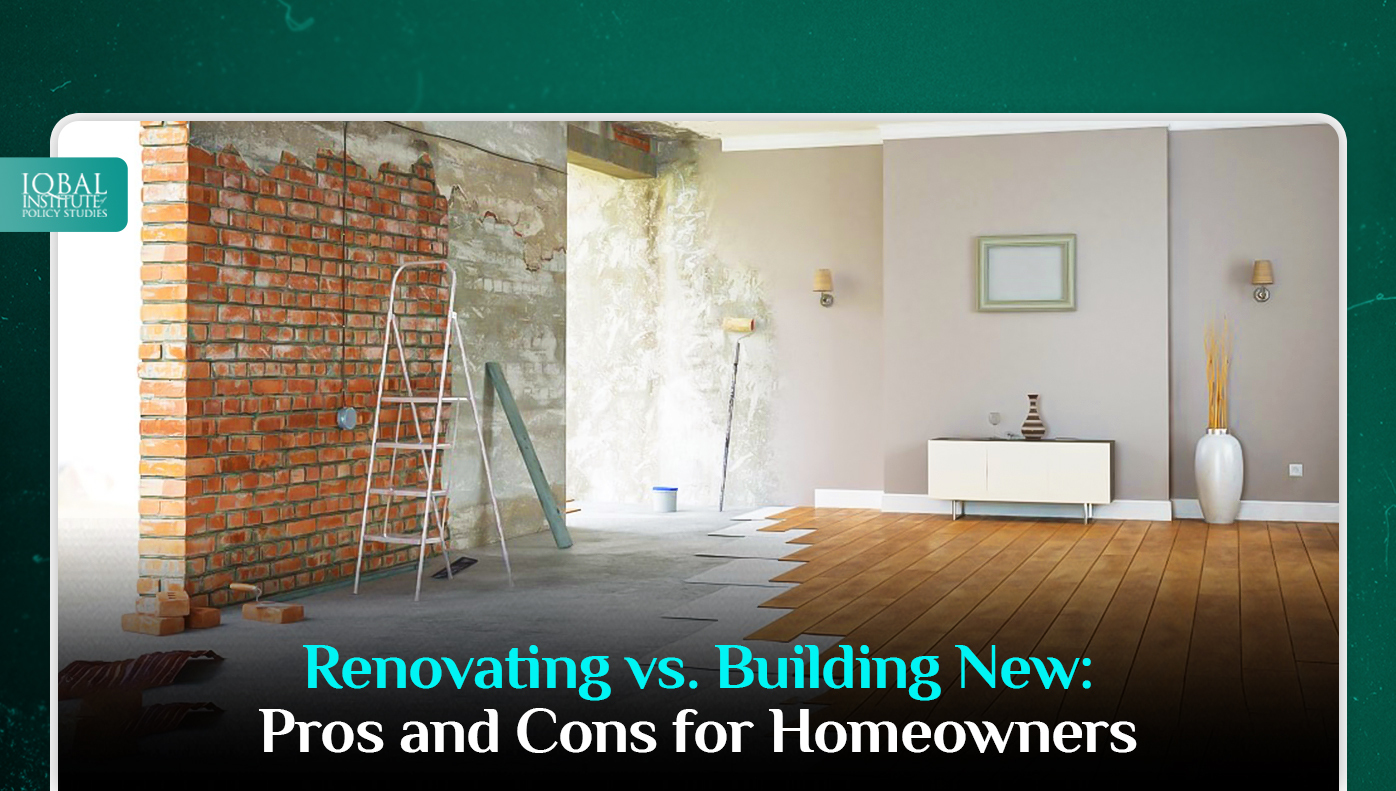Owning a home represents more than just having a place to live; it embodies a sense of stability, security, and personal accomplishment. However, the decision to either renovate an existing home or build a brand-new one is a significant choice that homeowners often face at some point in their lives. Both options come with their own set of advantages and disadvantages, and the choice people make can have a profound impact on their lifestyle, finances, and overall satisfaction with their living space. A home renovation can increase the size of a house, provide improved functionality, and, depending on the scope, be cost-effective. Conversely, building a new home from scratch could result in one’s dream home and potentially reduce certain long-term expenses. Therefore, individuals must carefully decide which path to take, considering their goals and resources to create the home that best suits their vision and lifestyle.
Pros of Renovating an Existing Home
Cost-Efficiency
Renovating is often more cost-effective than building a new home. Individuals can make improvements and upgrades while retaining the structure and some of the existing features.
Faster Timeline
Renovation projects tend to have shorter timelines compared to building a new house. One can often complete renovations in stages, allowing one to live in the home during the process.
Preservation of History
If the home has historical or sentimental value, renovating allows individuals to preserve its character and charm while making it more functional.
Location
In a location cherished for its proximity to work, schools, and family, one enjoys residing where needs are met.
Environmental Impact
Choosing to renovate an existing structure is a more environmentally conscious option than constructing a new one from the ground up. New construction tends to be more resource-intensive, resulting in increased waste generation. The extraction, packaging, and transportation of materials for new construction also contribute to higher emissions and are associated with greater levels of air, water, and noise pollution.
What are the Cons?
Hidden Costs
Renovations can sometimes uncover unexpected issues, such as structural problems or outdated wiring, which can lead to additional expenses.Renovation projects generally incur higher labor costs compared to new home construction, with labor expenses often accounting for as little as 30% of the total cost in the latter case (Biermeier and Lexie).
Design Limitations
Renovations may have design limitations due to the existing structure, making it challenging to achieve certain layouts or styles.
Temporary Disruption
Living through a renovation can be disruptive and uncomfortable. Dust, noise, and limited access to parts of home can be stressful.
Limited Energy Efficiency
Older homes may have limited insulation and energy-efficient features, making it more challenging and costly to improve energy efficiency.
Aging Systems
Renovating an older home may still leave one with aging plumbing, electrical, and HVAC systems that could require future upgrades.
Building a New Home: The Pros
Customization
Building a new home allows individualsto design every aspect to their liking, ensuring it meets their specific needs and preferences.
Energy Efficiency
New homes can be built with the latest energy-efficient technologies, reducing long-term utility costs and environmental impact.
No Hidden Issues
New construction typically comes with fewer hidden problems or maintenance issues, providing peace of mind.
Modern Amenities
People can incorporate the latest trends and amenities, such as open floor plans, smart home technology, and energy-efficient appliances.
Warranty
New homes often come with warranties on structural components and systems, providing added protection.
What are the Cons?
Higher Cost
Building a new home is usually more expensive per square foot compared to renovating an existing one, considering construction, permits, and land costs.
Longer Timeline
New construction projects can take longer to complete, especially if there are delays due to weather or other unforeseen circumstances.
Land Acquisition
Finding the right piece of land in the desired location can be challenging and expensive.
Stressful Decision-Making
The abundance of decisions involved in new construction, from floor plans to finishes, can be overwhelming for some homeowners.
Unknown Neighborhood
Moving to a new location means adjusting to a new neighborhood, schools, and community, which may not be as familiar or convenient as homeowner’s current one.
Making the Decision
Deciding whether to renovate or build a new home ultimately depends on home owner’s unique circumstances, goals, and priorities. Here are some key considerations to help make an informed decision:
If you have a limited budget, renovating may be the more practical choice. However, if you have the financial means and desire to create your dream home, building new may be the way to go.
Consider your timeline and how soon you need or want to move into your new living space. Renovations often have shorter timelines compared to new construction.
If you love your current location and community, renovating allows you to stay put. If you are open to a change or need to be in a different area, building new may be feasible.
If having a home that reflects your unique style and preferences is essential, building new offers complete customization.
Assess the condition of your existing home. If it has significant structural issues or is outdated beyond practicality, building new might be the better option.
Consider your environmental values. Renovating is often more eco-friendly, as it reduces waste and resource consumption.
Think about how well you handle stress and disruption. Renovations can be messy and inconvenient, while building new comes with its own set of challenges.
Conclusion
In the end, whether you choose to renovate or build a new home, both options have their merits and drawbacks. The decision should align with your budget, timeline, lifestyle, and personal preferences. Consulting with a real estate professional or architect can provide valuable insights into the specific needs of your project. Whichever path you choose, remember that your home should be a place of comfort and joy, so make the choice that feels right for you and your family.
This article is written by Haneen Gul. Haneen is a research analyst at the Iqbal Institute of Policy Studies (IIPS).



Leave a Reply